Description
ABSTRACT
Limitation of Liability in Maritime Claims in Nigeria
Oluseye Opasanya, SAN* and Yusuf Ganikale**
To protect the maritime industry against crushing claims and overwhelming damages that might be awarded against shipowners, the law permits shipowners to limit their liability rather than be subjected to the overall damage and damages resulting from their maritime adventure. Limitation of liability is one of the first examples of protectionism in the form of state support for the shipping industry. Its retention in the present day is justified not so much by its history but rather to provide the shipowner with calculable risk before embarking on a trading journey1.
Keywords: Maritime claim, limitation of liability, damages, shipowner, Merchant Shipping Act.
INTRODUCTION
Limitation of liability is the rule that allows those who are parties to a marine adventure, with particular reference to shipowners and their representatives, to limit their liability in the event of loss or injury to persons or things caused by or on board a ship to a particular amount. The basic concept of this principle is to reduce the shipowner’s liability by capping his total exposure.2
The two most important international Conventions relating to limitation of liability are the International Convention Relating to Limitation of Liability of Owners of Seagoing Ships, 1957 (the 1957 Convention) and the Convention on Limitation of Liability for Maritime Claims, 1976 (the 1976 Convention). Nigeria has adopted the provisions of the 1976 Convention in the Merchant Shipping Act 2007 (MSA) and its amendment Protocol, Protocol to Amend the Convention on Limitation of Liability for Maritime Claims, 1976 (the 1996 Protocol),3 making applicable in Nigeria the entire provisions of the 1976 Convention and the 1996 Protocol.
This paper examines the limitation of liability and the procedure for invoking this right and its limits.
EVOLUTION OF LIMITATION OF LIABILITY IN MARITIME CLAIMS
Following the great commercial revolution of the sixteenth century, the privilege of shipowner’s liability was adopted in almost all the continental maritime jurisdictions. The early examples of statutes concerning limitation of liability in Europe are (a) Statute of Hamburg of 1603, (b) Hanseatic Ordinance of 1614 (and 1644), (c) Maritime Codes of Charles II of Sweden (1667); and (d) 1721 Ordinance of Rotterdam. According to the statutes mentioned above, the liability of a shipowner was limited to the value of his vessel. The element of limitation under these statutes was that the proceeds of the value of the ship were to be used to satisfy the claimants.4
* LL.B (University of Lagos), LL.M (University of London), Senior Advocate of Nigeria, SAN. Deputy Managing Partner, Olaniwun Ajayi LP, Lagos, Nigeria.
** LL.B (Lagos State University), BL(Lagos). Associate, Olaniwun Ajayi LP, Lagos, Nigeria.
- John F Wilson, Carriage of Goods by Sea (4th edn, Pearson Longman 2001) 271.
- Alex Rein, ‘International Variations on Concepts of Limitation of Liability’ (1979) 53 Tulane Law Review, 1256.
- Section 335(1) (f) of the MSA.
- Gotthard Gauci, ‘Limitation of Liability in Maritime Law, an anachronism?’ (1995) 19(1) Marine Policy 65.

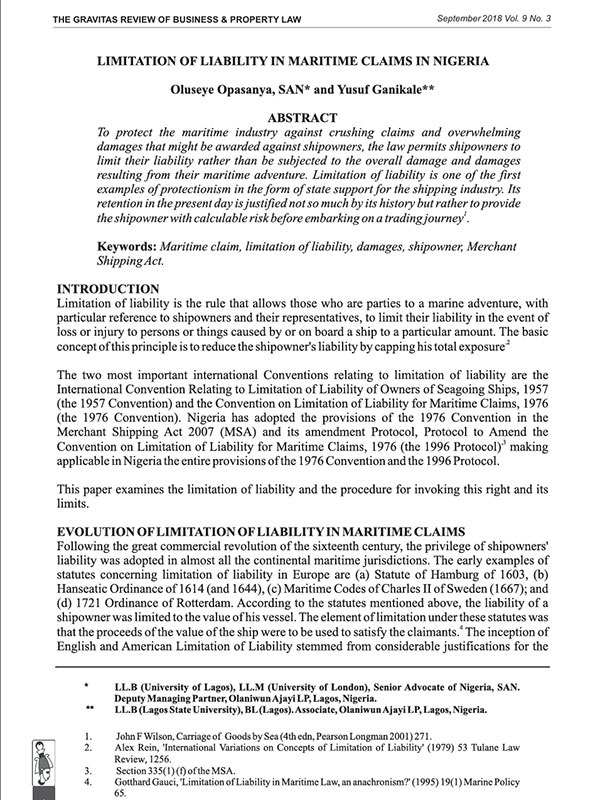

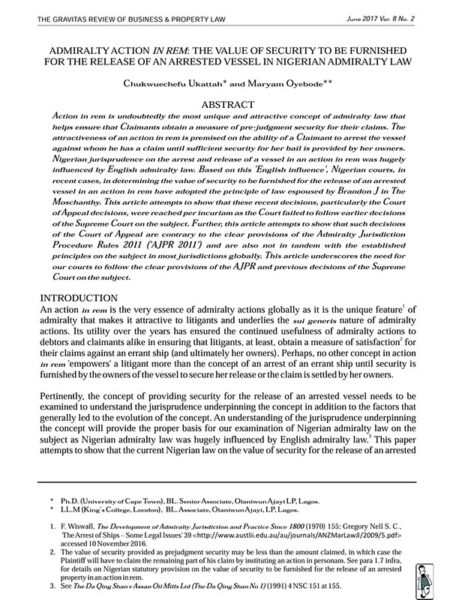
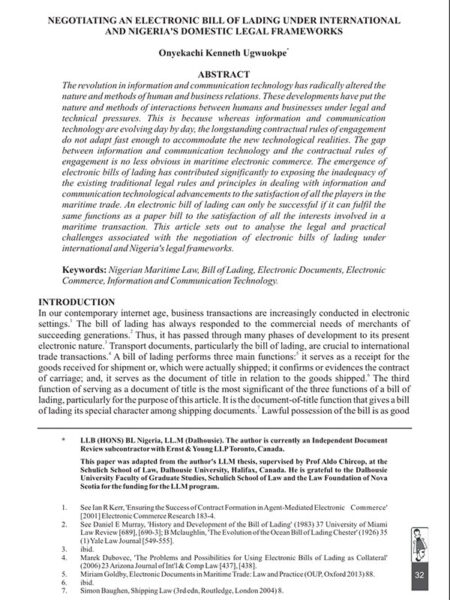
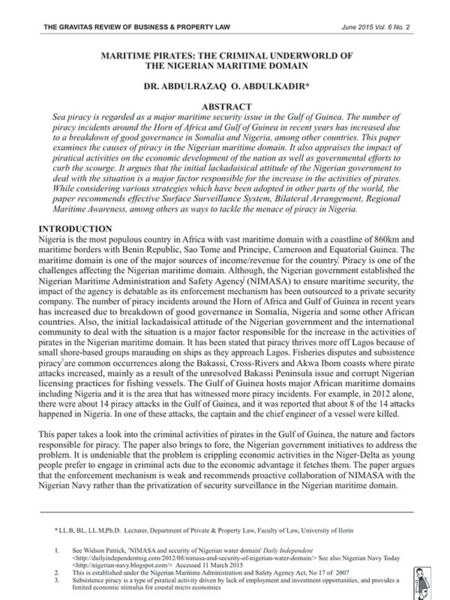


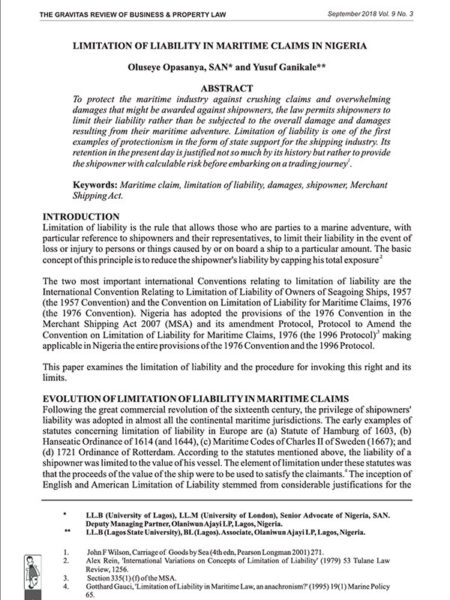
Reviews
There are no reviews yet.